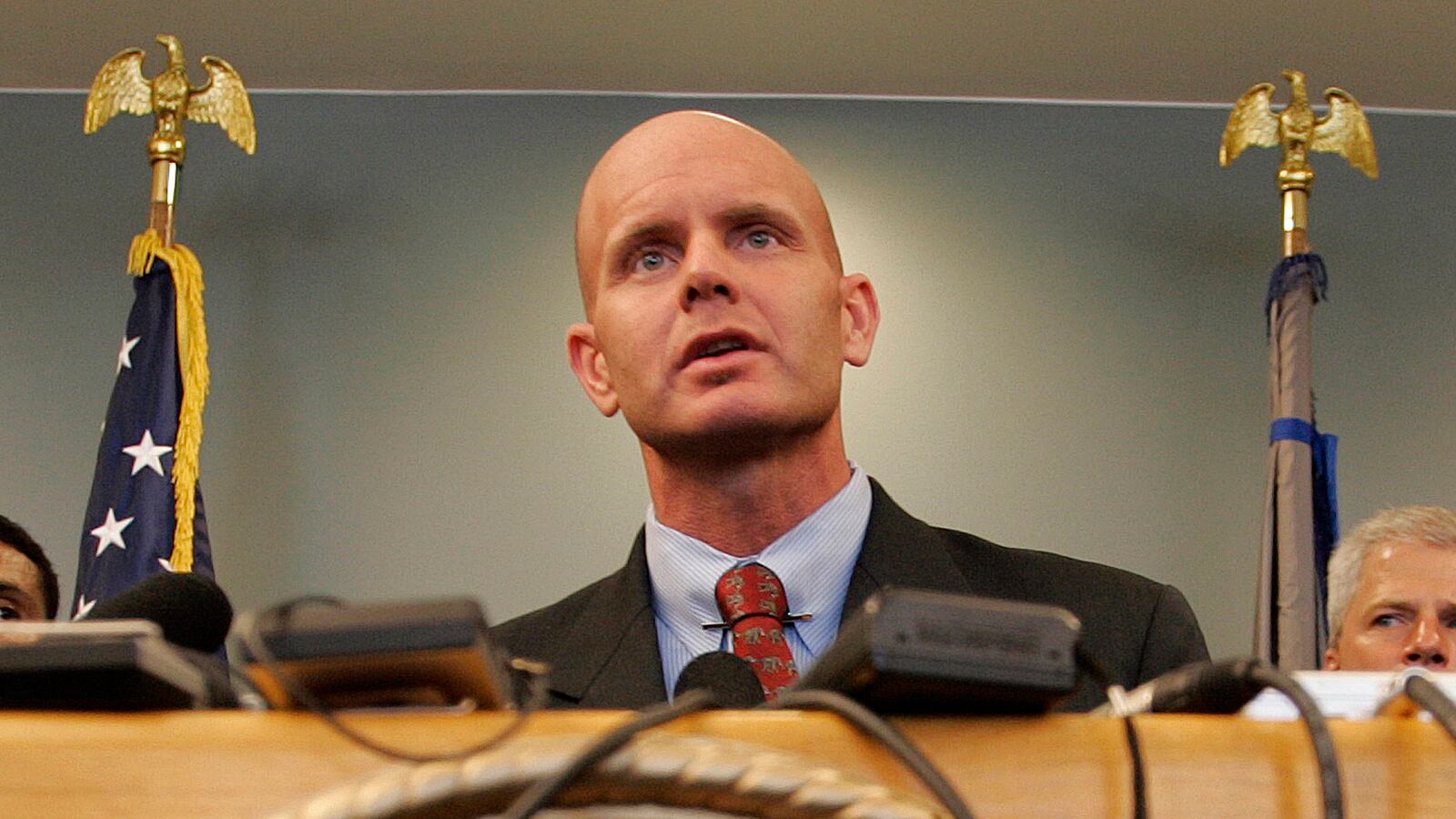Everybody loves a Washington sex scandal. But let’s not talk about sex for a second. A truly serious crime may have been committed in the Petraeus case.

Was the relationship between the Great Man and the Other Woman a crime? No way; fornication and adultery are not federal offenses.
What about the flaming emails she sent to the Other Other Woman? Not even close to a crime. Nothing to see here. Move along.
But wait! The billets-doux Petraeus sent to his paramour-cum-biographer on an unencrypted Gmail account! Weren’t they a threat to national security? An invitation to blackmail?
Not at all—unless Paula Broadwell turns out to be a Russian spy (which is all this story needs to fully command the attention of Congress and the media until we all fall down the fiscal cliff).
But, yes, a potentially serious violation of legal procedure took place in this sordid mess. It was the conduct of the Federal Bureau of Investigation agent at the heart of L’Affaire Petraeus.
An FBI agent based in Tampa, who has been identified by The New York Times as Frederick W. Humphries II, decided on his own that he would slip the raw reporting on the case to a member of Congress. The leak of the defamatory data about the director of the Central Intelligence Agency quickly made its way to House Majority Leader Eric Cantor, who told the FBI’s chief, Robert S. Mueller III.
Then it quickly spread among the leaders of the American intelligence establishment, and Petraeus himself. Career over; reputation stained. Petraeus is not the first director of the CIA to be embarrassed out of office. But he is certainly the first to have been embarrassed out of office by a rogue FBI agent’s leak about his sex life.
To repeat: a thorough search, if thoroughly unwarranted, through the private correspondence of Petraeus and Broadwell found no federal crime and no threat to national security. There was no information even close to approaching the threshold of potential danger to American intelligence that would have required the FBI to report the case to Congress. It was only a case of sex between two consenting adults, still legal under the federal statutes, though it violates one or two of the Ten Commandments.

Why then, in the name of God, did this matter proceed from an allegation of online bullying to the personal mortification and political destruction of a highly respected public figure?
Because FBI special agent Frederick W. Humphries II thought it was the right thing to do. In this, he appears to have been alone among his fellow agents. And yet, when he leaked the case to Congress, he carried the institutional imprimatur of the FBI in his attaché case.
The agent in question appears to have had a career marked by impressive professional highlights, along with a certain personal and political zeal that places him toward the rightward edge of the American political spectrum. His colleagues have called him aggressive and obsessive. Aggressive is a good character trait in an FBI agent.
Obsessive is not always quite so good.
By the accounts of the FBI itself, the agent was told there was no case here, and then further instructed, in no uncertain detail, to stay the hell away from the investigation. At this point, he appears to have decided that he and he alone was the law, that he and he alone knew what was best for national security, and that he and he alone should decide how this case should proceed.
He appears to have believed that, in the immortal words of Sen. Joseph McCarthy, he faced a conspiracy so immense that only he could stop it—a conspiracy to cover up the case of the century, a conspiracy to save the Obama administration from embarrassment or worse, a conspiracy to ensure the reelection of the president of the United States.
Sounds like a bad movie?
It is, and we have seen this movie before. It ran for many years, throughout the Cold War, and it starred J. Edgar Hoover, the FBI director from 1924 to 1972. In those bad old days, Hoover ruled by fear. He abused the truly awesome powers that the bureau possesses under law.
With a judge’s warrant—and in Hoover’s heyday, often without—the FBI has the power to read your mail, rifle through your personal papers, tap your phone, and bug your bedroom. Hoover himself did that to Martin Luther King, and he came up with tape recordings of King having sex with women who were not his wife. He tried to peddle this filth all over Washington, but not one member of Congress or one member of the press corps would touch it.
Times have changed.
This kind of backstabbing should have gone to its grave with Hoover 40 years ago. It is now time for FBI Director Bob Mueller, who has time and again proved himself an honorable man, to tell his agents and the American people that this is not Hoover’s outfit. That is not the way
the American law-enforcement and intelligence establishment uses its power under law. Trial by leak is not the American way. Nor is it any of the FBI’s damn business what any American, including the director of the CIA, does in bed in his own free time and of his own free will.





